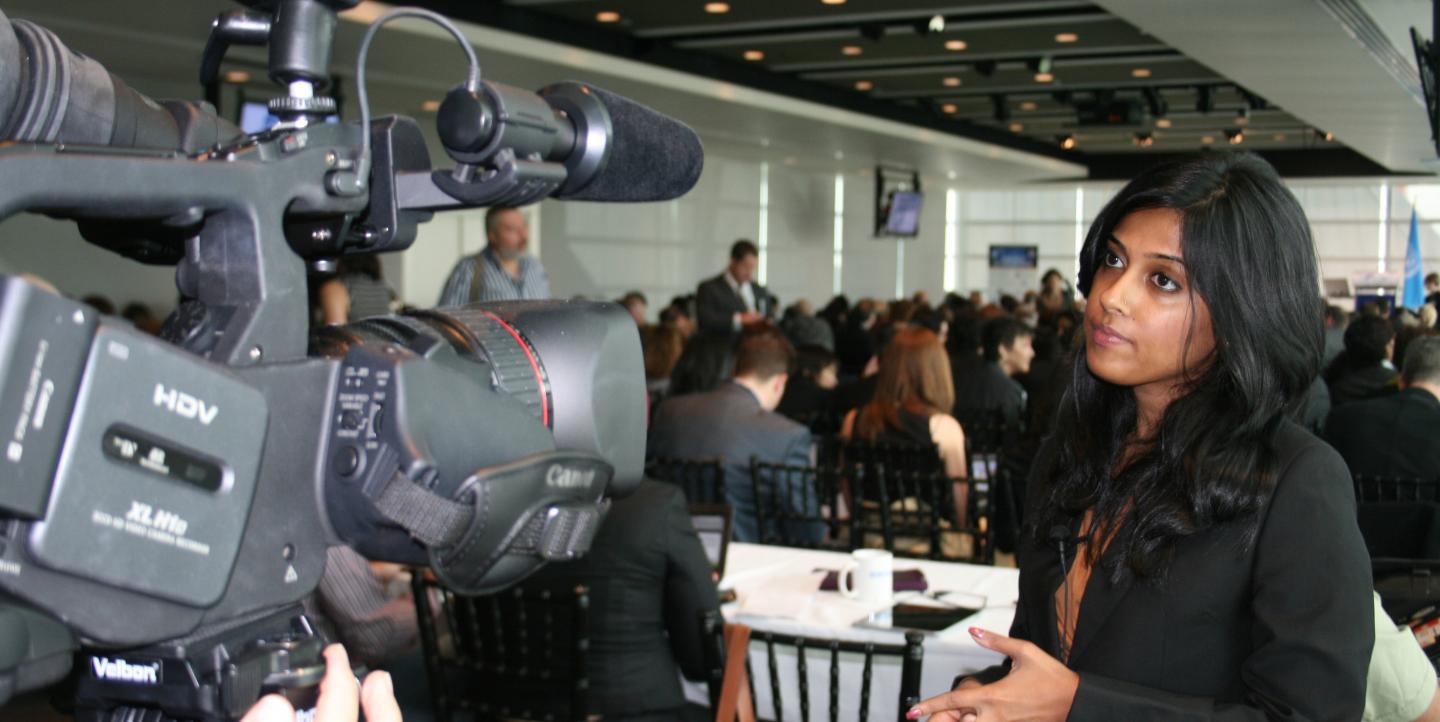IJNet asked a variety of participants at World Press Freedom day to define what press freedom means to them.
The answers ranged from working without fear of government reprisal to helping support democratic freedoms and institutions. Others talked of avoiding bias and being objective.
Yet others put it in stark economic terms. Without money, there is no free press in some places.
What does press freedom mean to you?
"Press freedom should be related to informing people rather than forming opinions. We should just provide information rather than just formulating opinions. In Pakistan, people do have insecurities about what they can say openly. They have to think about it before they talk about it. Press freedom is insecure at the moment, but hopefully there are steps to be taken in the direction where we can have press freedom, too."
– Madiha Javed Qureshi, Anchor/Associate Producer at Express News, Karachi, Pakistan
"In Latvia we have a free press, but we suffered from very heavy financial crises in 2008 and 2009, and we can still feel this in the media field. The average income from ads dropped down 40 percent, so it’s affected us. So I like to say now, you have media freedom in Latvia if you have money."
– Inga Springe, investigative reporter, Fulbright/Humphrey fellow at the University of Maryland
"Press freedom is a right of an individual to report objectively. Information is very important to society, and if people have chosen to be professional in the field of journalism, they owe the obligation to society to report the news to them as objectively as possible. So whatever stops that from happening is a deterrent to the freedom of press. Press freedom is to be able to overcome all of those obstacles that could stifle the free flow of objective reporting."
– Wale Idris Ajibde, Director of Research and Strategy, African Views media organization, New York
"Press freedom, I believe, is doing your job freely without bias, with credibility, professionalism and at most, neutrality. That’s press freedom."
– Hani Hazaimeh, reporter, Jordan Times
“This day means a lot to us. It’s an amazing opportunity for us to put more attention on the situation we have to endure.”
- Angelina Huynh, an activist with the pro-democracy organization, Viet Tan. The organization tries to bridge the gap among community groups in Vietnam and promote press freedom.
“[Press freedom is] the basis of all democratic freedoms. Without an open democracy, no political freedom exists… Our current government has started making aggressive proposals to abridge our freedom of expression … We are very fearful at the moment that some very bad laws are going to be introduced. We are somewhat understandably disillusioned that this government that has been so open is now backtracking.“
- Jeanette Minnie, a press freedom activist based in Johannesburg, South Africa. She said she helps African journalists fight for press freedom.
“I think we are still far away from when press freedom becomes a fact of life and is respected [in Iran]. I hope these events will promote it. A lot of news agencies in the West take press freedom for granted … These events are a reminder that press freedom is something that we are really still fighting for. This means that you have to value what you have.”
- Nazila Fathi, a Nieman fellow and correspondent for the New York Times in Iran.
-You can read more of IJNet's ongoing coverage of World Press Freedom Day here.
The United Nations Education, Scientific, and Cultural Organization (UNESCO) organizes World Press Freedom Day commemorations to celebrate the fundamental principles of press freedom; to evaluate press freedom; to defend the media from attacks on their independence and to pay tribute to journalists who have lost their lives in the line of duty. For complete information on the 2011 World Press Freedom Day global conference in Washington DC, see www.wpfd2011.org (in English)

